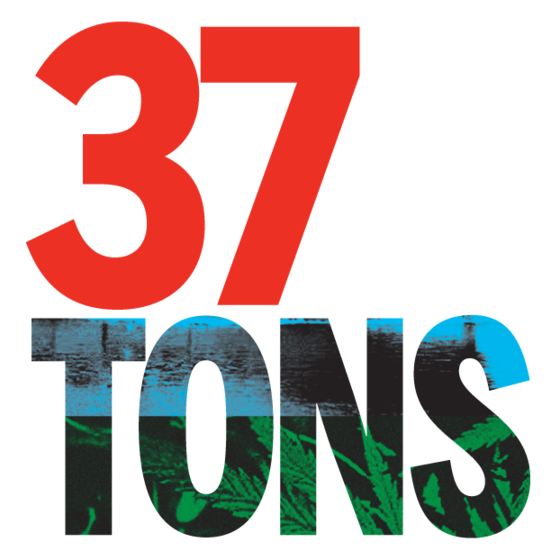PRISON INDUSTRIAL COMPLEX
PRISON INDUSTRIAL COMPLEX
Apparently incarcerating people, including illegal immigrants, has been good for both business and the people who invest in private prisons.
McDonald’s uses inmates to produce frozen foods. Inmates process beef for patties. They may also process bread, milk and chicken products.Wal-Mart The company uses inmates for manufacturing purposes. The company “hires” inmates to clean products of UPC bar codes so that products can be resold. Starbucks The company uses inmates to cut costs as well. Starbucks subcontractor Signature Packaging Solutions hired Washington state prisoners for packaging. Sprint Inmates provide telecommunication services. Inmates are used in call centers. Victoria’s Secret The company uses inmates to cut production costs. In South Carolina, female inmates were used to sew products. Also, inmates reportedly have been used to replace “made in” tags with “Made in USA” tags. Fidelity Investments 401(K) or other investments are held by Fidelity, and, in some cases, some of your money invested by Fidelity is used for prison labor or in other operations related to the prison industrial complex. The investment firm funds the American Legislative Exchange Council (ALEC), which has created laws authorizing and increasing the use of inmates in manufacturing .J.C Penney and Kmart Kmart and J.C. Penney both sell jeans made by inmates in Tennessee prisons.
For example, Nashville-based Corrections Corp of America (NYSE:CXW) – which has seen its stock price gain 171 percent since the start of 2006, leading to two stock splits – has doled out $881,898 in contributions since last year, including donations to immigration-policy hawks like Rep. Hal Rogers (R-Ky.), head of the powerful House Appropriations Committee. Corrections Corp of America (CCA) also began paying dividends last year, which is often done when companies feel they’re on stable enough footing to share profits with their shareholders and encourage them to continue to invest in their businesses.CCA, the largest private prison operator in the U.S., stated in its 2011 annual report that changes to the way the U.S. treats illegal immigrants, “could affect the number of persons arrested, convicted, and sentenced, thereby potentially reducing demand for correctional facilities to house them.” The country’s second-biggest private prison operator, The Geo Group, Inc. (NYSE:GEO) of Boca Raton, Fla., echoed similar sentiments deep inside of its 2011 annual report by saying state and federal reform laws could “materially adversely impact us.”
Geo told the Financial Times it has not lobbied Congress on immigration reform and that it has not taken any position on the issue. The company has seen its stock price rocket 343 percent since the start of 2006 following the implenetation of Operation Streamline. The company has since split its stock twice and paid out four dividends last year, including one for $5.68 a share.
Apparently incarcerating people, including illegal immigrants, has been good for both business and the people who invest in private prisons.
1.7 million offenders in 32 states, or nearly 70 percent of the inmates in U.S. prisons.
impress state corrections officials and gain their business, JPay spends heavily on industry conventions attended by agency heads with contracting authority. During a 2012 convention of the American Correctional Association, the company threw what it called an “END OF THE WORLD PARTY” at a Denver wine bar that bills itself as “about you, and your inalienable right to the unbridled enjoyment of food and wine.”The invitation, printed on a disposable beer coaster, promised “a bash, JPay-style: *fuerte* tequila, hand-rolled cigars, a live mariachi band.” Conventioneers could catch a JPay shuttle leaving from the hotel “ALL NIGHT LONG,” it said. For years, JPay has sponsored an award for former state corrections directors presented by the Association of State Correctional Administrators, paying for the recipient’s trip .
Ninety-seven percent of 125,000 federal inmates have been convicted of non-violent crimes. It is believed that more than half of the 623,000 inmates in municipal or county jails are innocent of the crimes they are accused of. Of these, the majority are awaiting trial. Two-thirds of the one million state prisoners have committed non-violent offenses. Sixteen percent of the country’s 2 million prisoners suffer from mental illness.
Private prisons are the biggest business in the prison industry complex. About 18 corporations guard 10,000 prisoners in 27 states. The two largest are Correctional Corporation of America (CCA) and Wackenhut, which together control 75%. Private prisons receive a guaranteed amount of money for each prisoner, independent of what it costs to maintain each one. According to Russell Boraas, a private prison administrator in Virginia, “the secret to low operating costs is having a minimal number of guards for the maximum number of prisoners.” The CCA has an ultra-modern prison in Lawrenceville, Virginia, where five guards on dayshift and two at night watch over 750 prisoners. In these prisons, inmates may get their sentences reduced for “good behavior,” but for any infraction, they get 30 days added – which means more profits for CCA. According to a study of New Mexico prisons, it was found that CCA inmates lost “good behavior time” at a rate eight times higher than those in state prisons.
Who is investing? At least 37 states have legalized the contracting of prison labor by private corporations that mount their operations inside state prisons. The list of such companies contains the cream of U.S. corporate society: IBM, Boeing, Motorola, Microsoft, AT&T, Wireless, Texas Instrument, Dell, Compaq, Honeywell, Hewlett-Packard, Nortel, Lucent Technologies, 3Com, Intel, Northern Telecom, TWA, Nordstrom’s, Revlon, Macy’s, Pierre Cardin, Target Stores, and many more. All of these businesses are excited about the economic boom generation by prison labor. Just between 1980 and 1994, profits went up from $392 million to $1.31 billion. Inmates in state penitentiaries generally receive the minimum wage for their work, but not all; in Colorado, they get about $2 per hour, well under the minimum. And in privately-run prisons, they receive as little as 17 cents per hour for a maximum of six hours a day, the equivalent of $20 per month. The highest-paying private prison is CCA in Tennessee, where prisoners receive 50 cents per hour for what they call “highly skilled positions.” At those rates, it is no surprise that inmates find the pay in federal prisons to be very generous. There, they can earn $1.25 an hour and work eight hours a day, and sometimes overtime. They can send home $200-$300 per month.
Jailing persons convicted of non-violent crimes, and long prison sentences for possession of microscopic quantities of illegal drugs. Federal law stipulates five years’ imprisonment without possibility of parole for possession of 5 grams of crack or 3.5 ounces of heroin, and 10 years for possession of less than 2 ounces of rock-cocaine or crack. A sentence of 5 years for cocaine powder requires possession of 500 grams – 100 times more than the quantity of rock cocaine for the same sentence. Most of those who use cocaine powder are white, middle-class or rich people, while mostly Blacks and Latinos use rock cocaine. In Texas, a person may be sentenced for up to two years’ imprisonment for possessing 4 ounces of marijuana. Here in New York, the 1973 Nelson Rockefeller anti-drug law provides for a mandatory prison sentence of 15 years to life for possession of 4 ounces of any illegal drug.
The passage in 13 states of the “three strikes” laws (life in prison after being convicted of three felonies), made it necessary to build 20 new federal prisons. One of the most disturbing cases resulting from this measure was that of a prisoner who for stealing a car and two bicycles received three 25-year sentences.
. Longer sentences.
. The passage of laws that require minimum sentencing, without regard for circumstances.
. A large expansion of work by prisoners creating profits that motivate the incarceration of more people for longer periods of time.
. More punishment of prisoners, so as to lengthen their sentences.
Thanks to prison labor, the United States is once again an attractive location for investment in work that was designed for Third World labor markets. A company that operated a maquiladora (assembly plant in Mexico near the border) closed down its operations there and relocated to San Quentin State Prison in California. In Texas, a factory fired its 150 workers and contracted the services of prisoner-workers from the private Lockhart Texas prison, where circuit boards are assembled for companies like IBM and Compaq.
[Former] Oregon State Representative Kevin Mannix recently urged Nike to cut its production in Indonesia and bring it to his state, telling the shoe manufacturer that “there won’t be any transportation costs; we’re offering you competitive prison labor (here).”
CCA signed contracts with sheriffs in poor counties to build and run new jails and share the profits. According to a December 1998 Atlantic Monthly magazine article, this program was backed by investors from Merrill-Lynch, Shearson-Lehman, American Express and Allstate, and the operation was scattered
For example, Nashville-based Corrections Corp of America (NYSE:CXW) – which has seen its stock price gain 171 percent since the start of 2006, leading to two stock splits – has doled out $881,898 in contributions since last year, including donations to immigration-policy hawks like Rep. Hal Rogers (R-Ky.), head of the powerful House Appropriations Committee. Corrections Corp of America (CCA) also began paying dividends last year, which is often done when companies feel they’re on stable enough footing to share profits with their shareholders and encourage them to continue to invest in their businesses.
CCA, the largest private prison operator in the U.S., stated in its 2011 annual report that changes to the way the U.S. treats illegal immigrants, “could affect the number of persons arrested, convicted, and sentenced, thereby potentially reducing demand for correctional facilities to house them.”
The country’s second-biggest private prison operator, The Geo Group, Inc. (NYSE:GEO) of Boca Raton, Fla., echoed similar sentiments deep inside of its 2011 annual report by saying state and federal reform laws could “materially adversely impact us.”
Geo told the Financial Times it has not lobbied Congress on immigration reform and that it has not taken any position on the issue. The company has seen its stock price rocket 343 percent since the start of 2006 following the implenetation of Operation Streamline. The company has since split its stock twice and paid out four dividends last year, including one for $5.68 a share.
Also in News

PODCAST THE SHADOW SMUGGLER


